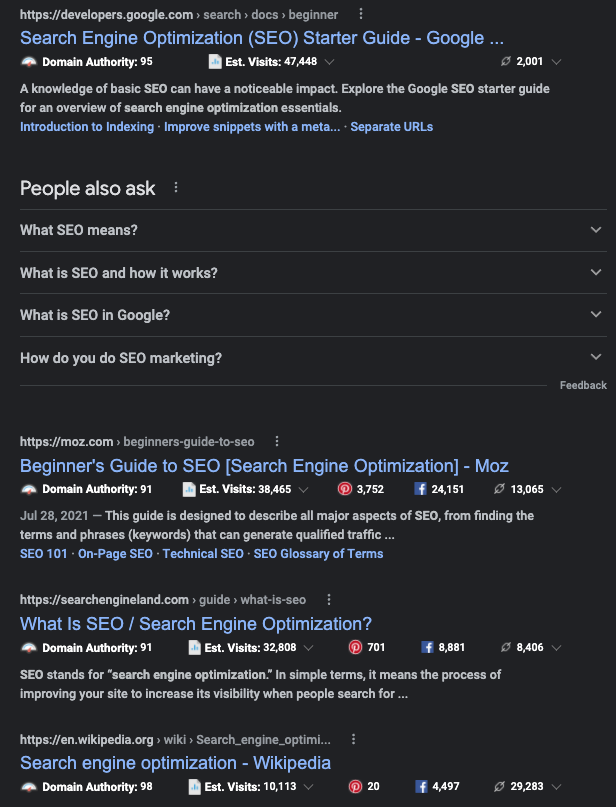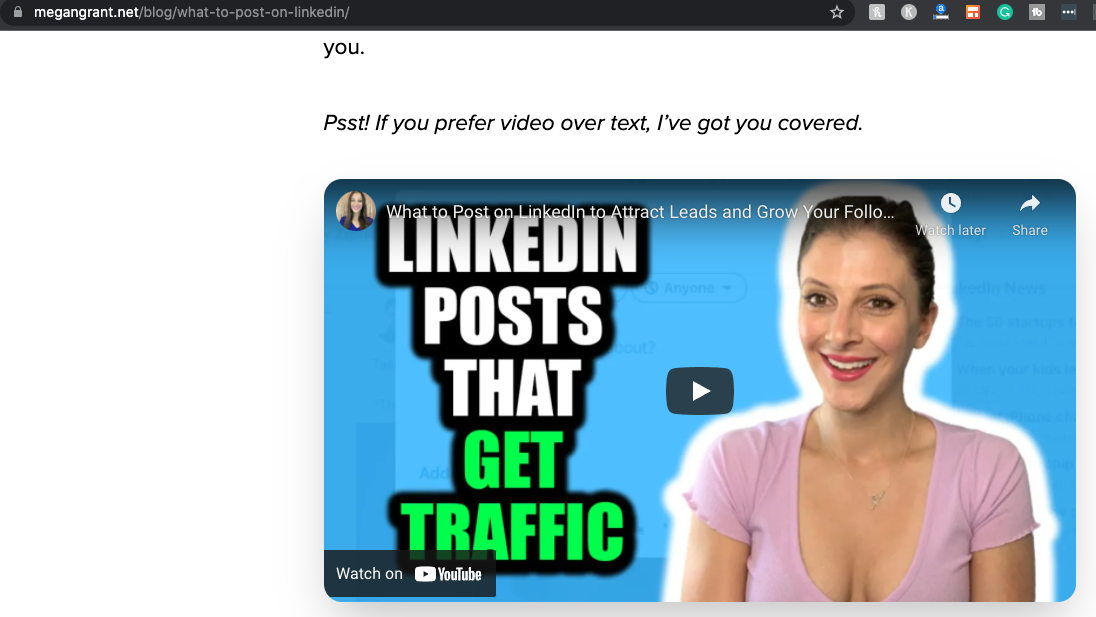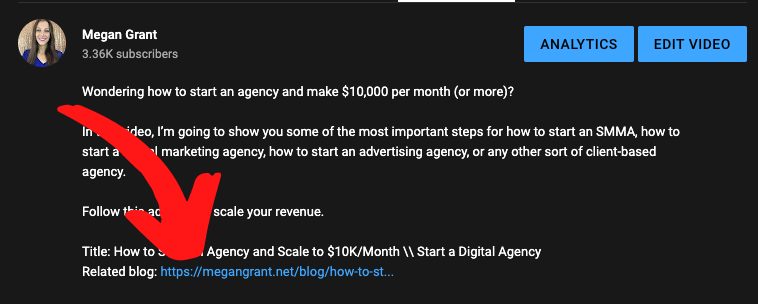“Nah. We don’t do SEO. It doesn’t work.” Our agency has heard this more than once. Search engine optimization has changed tremendously over the years. Google updates its algorithms 500-600 times a year. Many (most, really) of these changes, you don’t even notice. Others, however, are significant. With how saturated Google is, and with how many brands are competing for a coveted spot on the first page, is SEO dead?
Let’s go!
Is SEO Dead? The Answer is Complicated
We can say, without a shadow of a doubt, that SEO is alive, well, and mandatory if you want people to find you in search engines.
Don’t believe us? Here are a few SEO statistics that prove our point:
- Approximately 68% of online experiences start with a search engine.
- 53.3% of all website traffic comes from organic search.
- Search engine optimization drives over 1000% more traffic than organic social media.
This is the tip of the iceberg, but the point is this: If you want people to hear about your brand, then your website must be visible. And for your website to be visible, you need SEO. Period.
Why, then, do some people insist that SEO is dead? Let’s get to that next.
Google — And thus, SEO — Changes Constantly
Is SEO going to end? No. Is it evolving? Yes. Do we need to evolve with it? Yes!
Search engine optimization as we knew it even a few years ago is gone. What used to work doesn’t work anymore.
SEO Tactics That Don’t Work Anymore
Let’s go through a few examples.
Keyword Stuffing
Years ago (think the early 2000s-ish), not only could you get away with keyword stuffing, but you could get a page to rank with this black hat tactic. (Keyword stuffing means cramming a keyword onto a webpage as many times as possible.)
Yes, by a florist copying and pasting the phrase “flower shop in NYC” 50 times on a page, no matter how awkward it sounded, they could rank on the first page of Google for this valuable keyword.
Because Google cares most about user experience, they care about your content sounding natural to the reader. And if you’re using keyword stuffing, your content will sound anything but natural.
Hidden Keywords or Links
People thought they could be sneaky by cramming keywords or links onto a webpage and then changing the color of the font to blend in with the background.
Spoiler alert: Google still sees it.
Buying Backlinks
Buying backlinks (links on other websites that point to your website) was something else you could get away with. Heck, people still try this — and pay for it, literally and figuratively. Google knows when backlinks aren’t genuine. It will disavow them (basically say, “Nope, we don’t care about these!”), and then it’s going to ding your website — most likely with dropped rankings.
These are just a few black hat tactics that were popular in years past. It goes without saying that they do not work anymore.
These days, ranking for keywords you care about is a lot more challenging. Google is saturated. And an astronomical number of pages are competing for space. Check this out. We searched “what is SEO” in Google. Here’s what we see:

The data on the right in the search bar is from Ubersuggest . It tells us that this search term gets about 22,200 searches per month. However, there are 683,000,000 pages trying to get your attention for this query.
And there are 10 spots on page one. Yikes.
It’s due to this abundance of content that Google has had to step up its game and become a lot savvier.
This means that ranking takes a lot more time, energy, and thought than it used to. Keyword stuffing doesn’t cut it anymore. Now, you also need to think about things like:
- The monthly traffic a keyword gets.
- Its competition.
- Its user intent.
- Whether it’s informational or commercial.
- What advertisers are paying for it.
- How many clicks it actually drives in the SERPs.
- The domain authority of pages already ranking for that term.
Ranking doesn’t happen overnight. It can take weeks and months. So, it’s easy to understand why in this digital age, where our attention span rivals that of a goldfish and people want instant gratification, brands think that SEO is dead.
“It’s fine. I’ll just rely more on social media,” you might be saying. Yes, social media is another important factor in your digital marketing strategy. But make no mistake about it: Those channels are only becoming more competitive as well.
Take Instagram as an example. In Q1 2019, the engagement rate for sponsored posts hit an all-time low of 2.4%, down from 4% three years prior. The rate for non-sponsored posts dropped from 4.5% to 1.9%.
No matter where you go, you will be competing. This isn’t bad. It just means that you have to know how to play the game.
And this is why SEO is still important.
As a related side note, you might consider PPC (pay-per-click, meaning ads) as a workaround. In other words, “I’m not worried about SEO. I’ll just run ads.”
Ads can be another smart addition to your digital marketing strategy if you know what you’re doing. However, research says that organic searches are 8.5 times likelier to be clicked on .
You can’t deny it. You need SEO.
The Future of SEO: It isn’t Dead — It’s Evolving
Is SEO still relevant? You now know that the answer to this is a resounding yes. What do you need to know about search engine optimization today to get your website ranking?
Google’s #1 Priority is the User
And this means that your #1 priority should be the user. If you had any doubt that Google cares most about the user, just look at SERP features like People also search for and autocomplete.
You can pick the perfect keyword. You can optimize your blog beautifully around it. Maybe you follow all the standard SEO best practices.
But if you don’t ultimately make the user happy, then none of it matters.
There’s this thing called user intent (also known as search intent). It refers to what exactly a user is trying to learn when they search for something in Google.
Sometimes, the user intent is obvious. If someone searches, “best SEO tools 2021,” we have a pretty good idea of what they need.
However, what if they search “SEO” or something equally broad? That could refer to so many different things. Maybe they want a definition of SEO. Maybe they want to learn best practices. Perhaps they want to hire an SEO specialist.
In this case, if you want to rank for the term “SEO,” then you need to know exactly what someone wants to learn when they search it — because if you don’t give them what they need, then your page isn’t going to rank, plank and simple.
Make the user happy, and you’ll make Google happy.
Become a Specialist
Specialists are more in demand than generalists. This is a simple and very accurate rule of thumb.
Let’s say you write a blog about what SEO is. Guess what? We already know that 683,000,000 pages are trying to show up on page one for this search term.
We can do better than that.
Instead of going wide, think of going deep. Pick more specific keywords and topics to blog around. For instance, “SEO certification” displays 156,000,000 pages and still has a monthly search volume of roughly 1,900.

Does that make this search term perfect? Maybe, maybe not. But we’re at least on the right track.
On a similar note…
Be Realistic About What Terms You Can Compete For
We gave you a good example of a term you’d probably never want to try to rank for: SEO. Why? Simple: The competition is way too high. We’d probably never rank for it.
Check out the top four ranking pages for this term: Google, Moz, Search Engine Land, and Wikipedia. Their domain authorities (kind of like their reputation) are 95, 91, 91, and 98, respectively, out of 100.

What are the odds of outranking them? Slim to none. It’s not a good keyword to target.
The vast majority of us will want to look for keywords that are much lower in competition. For instance, when we’re creating keyword reports for our clients, we use a tool called Ahrefs . In our opinion, this is one of the best SEO reporting tools.This tool measures the difficulty of keywords on a scale of 0 to 100 (100 being the most difficult). As we’re sifting through thousands of potential keywords, we focus particularly on ones that have a difficulty of 20 or less. This means we’re prioritizing keywords that our clients stand a much higher chance of ranking for.
Prioritize Quality Right Next to Quantity
Do you want to blog regularly and consistently? Yes! But it’s a moot point if the quality isn’t there.
One awesome blog post a week is better than three mediocre ones. We see too many brands trying to make up for a lack of high-quality content by paying inexperienced writers (or content mills — blegh) very low rates to churn out low-quality content.
Not only will this content not benefit their sites, but it can actually hurt them. Google is always watching.
On a similar note, don’t do that thing where you beef up a blog’s word count just because you think longer is better. This is false. What determines whether your content is long-form or short-form is how many words it takes you to satisfy user intent. That’s all.
Invest the time — and, if needed, the money — is creating content that shines. If you can’t handle this in-house, outsource it to a content agency, like us.
Promote and Repurpose Your Content
Too often, we see brands publish a great blog… and then never look at it again. This is a waste of content.
In order for Google to see how much people love your content, you have to continue to drive traffic to it. This means that as long as it’s not time-sensitive, you should be repeatedly sharing your blogs through social media and email marketing over time.
Furthermore, you can take the blogs you write and repackage them as other types of material. For instance, you can turn a blog into:
- A podcast.
- A YouTube video.
- A live stream.
- Quote graphics.
You can then use these newer pieces of content to drive traffic back to the original blog. The same goes for the reverse: Use the original blog to drive traffic to the newer pieces.
Our founder, Megan, does this on her website. If she writes a blog that has a corresponding YouTube video, she embeds the video in the blog and links to the blog in the video description.
Here’s a video embedded in a blog.

And here’s a blog linked to in a YouTube video description.

TL;DR
Is SEO dead? No.
Does it change over time? Yes. And this means that you need to change along with it.
Ditch black hat tactics like:
- Keyword stuffing.
- “Invisible” words and links.
- Buying backlinks.
Instead, focus on:
- Prioritizing the user.
- Becoming a specialist.
- Going for keywords you can actually compete for.
- Consistently publishing high-quality content.
If you dedicate the time and energy to this, Google will reward you with higher rankings and more traffic.
It’s a lot — we know. Keyword research isn’t easy, and blogging isn’t quick. Let us handle it for you. Contact us today and let’s talk about getting you ranking.
